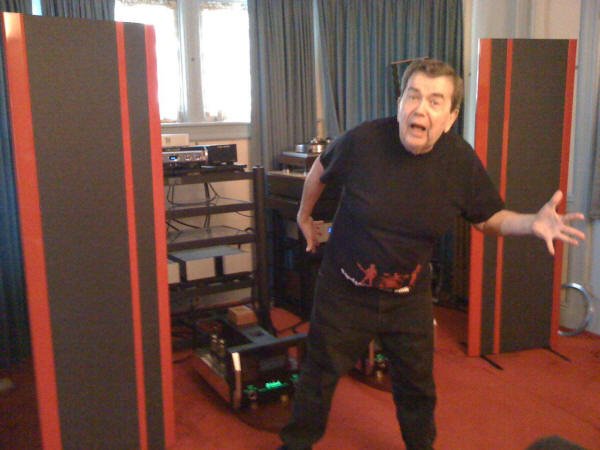Commenting on the differences in SQ between live and reproduced music at home is not productive for me due to the many comments already made. Let’s not show this thread to any musicians please or they would probably post something on social media asking to burn down the site. Let’s also dispense with the most obvious differences that cannot be captured in a reproduced environment; namely the humanism factors including the ability to see the orchestra players' faces, the audience’s reactions that range from rapt attention to falling asleep, the conductors abilities to shape the performance, etc. and just focus in the sound in the hall. It can’t be emphasized adequately how great the variations are in SQ depending on where one sits in a given hall. If I may, I’ll illustrate using Carnegie Hall as an example with 4 seating locations.
View attachment 59501
View attachment 59502
Position 1- mid parquet dead center. This might surprisingly be the worst sound one can possibly hear even in a good hall. To begin, you are generally sitting below the level of the players on stage. If the sound were coming from their shoes, you might have a chance of hearing some detail and direct sound that is in balance with the ambient sound of the hall. It’s no surprise to me that Mike wasn’t impressed with his experience there (in his hall). I’m also pretty sure that if he were at David Geffen Hall he would have liked it even less. That location is just terrible. Better to be in a muffled submarine.
Position 2- First tier, a bit off of dead center to the right. One of my regular seats for the concerto series. Excellent sound, plus the ability to see the pianist’s hands make this a particularly desirable location. Great clarity of sound, very good instrument localization, excellent hall ambience.
Position 3. First tier, about a quarter of the way around to the left. Another regular seat of mine for smaller groups, chamber, soloists, etc. but sometimes larger pieces (I just saw M4 from these seats). I completely understand what Al and Ian said about their somewhat similar seating experience in Boston regarding their ability to “hear everything.” And where “complex orchestral music is extraordinarily well presented in all its intricacies of texture and detail”.
In Carnegie, a big difference between position 2 and 3 is that the latter is 30 feet closer to the stage due to the horse shoe configuration of the lower balcony. That 30 foot difference makes a world of difference in the immediacy of sound that one hears. Position 3 is over row Q whereas position 2 is over row Z. Even though you can see and hear the entire stage from position 3, you are not dead center and there is no way to get dead center 30 feet in front of position 2 unless you can float in space somewhere above the parquet seats. If that’s the position you covet, you’ll have to fly west to Chicago or St. Louis. The Chicago Symphony Center and Powell Hall in STL are shorter halls, so their balconies allow the unusual combination of center seating, elevation above the stage and an immediacy of sound that is not available even at the great Carnegie. At Chicago, the Lower Fadim balcony (and more expensive Box Seats just below the Fadim lower balcony) are probably not only the best overall concert hall seats in America available at reasonable prices, but allow great sound to be shared by hundreds of concert goers, and not just a handful as in the best boxes at Carnegie.
Position 4. Nose bleed section, top balcony. Why would I even mention these seats? Who would ever want to sit there? Well, it turns out, a lot of people. It’s no accident that Harry Pearson thought these were the best seats in the hall.
https://www.whatsbestforum.com/threads/the-sound-at-carnegie-hall.20911/
In summary, as in real estate, it’s all about “location, location, location” when it comes to the sound one hears in any concert hall. Making generalizations about the sound of any given hall has limitations but more importantly, the listening enjoyment one can derive in any given hall can vary widely from seat to seat.







